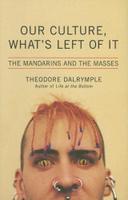Capote

One of my favorite actors, Philip Seymor Hoffman, stars in the movie "Capote," which opens today. Here is Stephen Hunter's take:
Truman Capote was as corny as Kansas in November, which is to say not corny at all.
So what was the elfin, mincing, vicuna-wrapped, dowager-loving, gossip-mongering, gay, E.T.-looking writer doing in a small village in the western edges of the Jayhawk State in November 1959? (He probably didn't even know what a jayhawk was.) The answer is twofold, according to Gerald Clarke's great 1988 biography "Capote" and this terrific movie based on a substantial part of it: writing a great book and destroying himself.
..."Capote" gets at the writer's ethical dilemma: Real people and their lives are never as tidy as a good story, and they must be nudged, shoved, manipulated to get with the program. Every writer of long-form nonfiction faces this issue; he also needs the cooperation of people his book will be unkind to, and so the manipulations are creative, as are, in his interior life, his justifications.
...The point it makes, and almost as a dish of justice served hot, is that all this cost Capote everything. He did what he had to do, he wrote what he had to write, and he was left with fame and fortune -- and plenty of nothing. It ignores theories of alcoholism (the writer's clear problem, no matter what else may have afflicted him) as disease. Instead it treats alcoholism as a symptom of a deeper soul rot.
That last point reminded me of something I read the other day in a book I just picked up, called, "Our Culture, What's Left of It," by Theodore Dalrymple:

Of the thousands of patients I have seen, only two or three have ever claimed to be unhappy: all the rest have said they were depressed. This semantic shift is deeply significant, for it implies that dissatisfaction with life is itself pathological, a medical condition, which it is the responsibility of the doctor to alleviate by medical means. Everyone has a right to health; depression is unhealthy; therefore everyone has a right to be happy (the opposite of being depressed).
This idea in turn implies that one's state of mind, or one's mood, is or should be independent of the way that one lives one's life, a belief that must deprive human existence of all meaning, radically disconnecting reward from conduct.
A ridiculous pas de deux [dance] between doctor and patient ensues: the patient pretends to be ill, and the doctor pretends to cure him. In the process, the patient is willfully blinded to the conduct that inevitably caused his misery in the first place. I have therefore come to see that one of the most important tasks of the doctor today is disavowal of his own power and responsibility. The patient's notion that he is ill stands in the way of his understanding of the situation, without which moral change cannot take place. The doctor who pretends to treat is an obstacle to this change, blinding rather than enlightening.
If Stephen Hunter says that "Capote" treats such things as alcoholism within that kind of a moral framework, I am all the more excited to see it.


0 Comments:
Post a Comment
<< Home